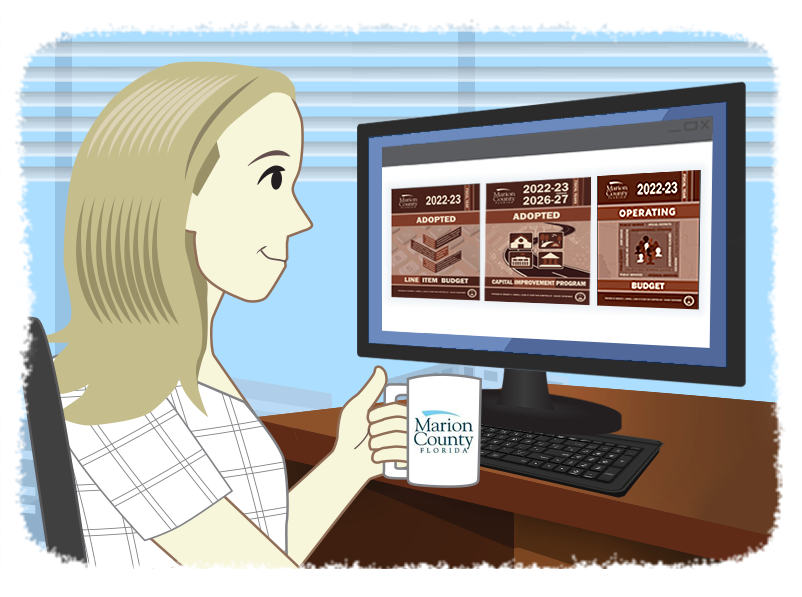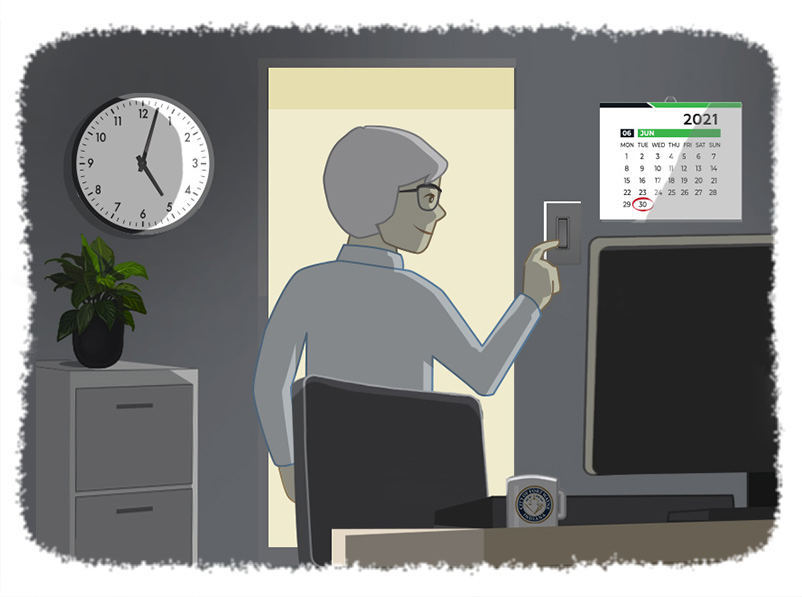School District 83
- Rachel Raymond
- Success Stories
- minute(s)Time to Focus on the Big Picture: Automating Financial Statements for School District 83 Project: PSAB Automation Organization: School District 83 Students: 6,100 Platform: Workiva The Challenge The finance team at School District 83 (Okanagan-Shuswap, British Columbia) was looking to save time and money; reduce errors; and improve its reporting reliability, repeatability, and standardization; by automating its financial statements. When we met the team, their data preparation stage was heavily dependent on complex spreadsheets—requiring too much keying and leaving little time for analytics. “We utilized Excel, as well as other Office products—like Word for our financial notes and our financials, even discussion analysis. So, it was a very fractured overall process when we...look back on it,” said Jeremy Hunt, Finance Director for the district. The team was accustomed to finalizing, formatting, and preparing statements manually—a time-consuming and frustrating process. Additionally, they were required to complete Local Government Data Entry (LGDE) forms, which meant replicating the information from their annual report and manually keying it into the ministry’s template for online submission. Jeremy explained that in previous years, the team's work was paper-heavy. "We have binders. Nine-inch or 12-inch binders. I know they’re massive for year-end. And the backs of those…are all printed and messy,” he said. What’s more, the finance team frequently had difficulty finding original hard-copy source documents to back up their data. Jeremy looked forward to updating their process, so they “wouldn’t have to find a paper copy every year…that validates a number.” The district’s team also wished to collaborate simultaneously without risk of overwriting crucial information. “We wanted something that allowed access to the individual that was required to do that work, but locked down areas where we didn't want them working,” said Dale Culler, Secretary–Treasurer/CFO. They were also interested in a multi-functional tool. “The biggest limitation that we have in our department...is staffing resources to move forward with any initiative...and when we consider the end product, we wanted to move towards something that would allow us to potentially consolidate...future reporting requirements,” said Jeremy. The Solution FHB met with the district’s team to evaluate their existing processes and develop a customized solution to meet their needs. Initially, the conversation included using Caseware. “The Caseware discussion was because that's what we...were familiar with. But we also wanted to be open, to hear about advancements in the industry, where it's going...Caseware requires a very specific knowledge. We wanted something with the structure, the rows and columns that people are familiar with,” said Dale. In the end, FHB recommended Workiva. As a cloud-based platform, Workiva offers a collaborative database (Wdata) as a single source for data entry/management and an advanced report writer (Wdesk) for instant and automatic preparation of consistent, formatted reports—mitigating risk of data-entry and calculation errors and improving overall report accuracy. "It was concerning that it would be difficult to learn a new piece of software. But once we got into it and started to see the back end of it and how it really worked, and became more familiar with it, it was very Excel-based. That took away a lot of the reservations that I had, and I believe Dale had as well, about us being able to understand and use it in a logical manner that would follow what we're used to,” said Jeremy. The Service “Christine was on top of it. She kept us on the tracks…I can’t say enough about what she did for us. She’s very helpful.” –School District 83 Finance Director Jeremy Hunt Throughout the project, the School District 83 staff was highly impressed with the responsiveness of the FHB team. [FHB Principal Consultant Christine Gilbert, CPA, CA] did a great job…she would answer questions whenever I would throw them over, and…usually it was within like an hour,” said Jeremy. “It was a great experience.” “It's definitely appreciated that Christine had some experience in PSAB that we could draw support from,” he added. When asked to rate FHB’s general knowledge of Workiva and reporting standards on a scale of one to 10, with 10 being “the greatest ever,” Jeremy responded, “It’s a nine or a 10.” He wouldn’t hesitate to recommend FHB to peers and colleagues. “They were patient when we were struggling to keep up…they were accessible and worked with us on issues that we had…I would definitely recommend that FHB would be a good partner to implement any accounting-related software.” –Jeremy Hunt The Results So far, the greatest benefit of the Workiva implementation has been time savings. “It's just going to reduce the amount of…data entry that we have historically relied on. We were using reports from our old clunky system that doesn't provide great reporting…mapping was not the greatest previously. So, it's...going to speed up that manual entry time. It will help us validate data as well,” said Jeremy. Jeremy added that Workiva has far exceeded his expectations. “User friendliness has been amazing...it didn't take much training, to be honest, to understand how to use this product...on top of that, I can see how it links everything together and can easily produce something that is better than what we have previously done over many hours—in just an hour,” he said. Dale agreed, adding, “Workiva provides one place...in which to do review...and because it's very consistent with the way that we've been trained to look for things when...creating working papers, it'll be much quicker to do that." Before Workiva, "when things were disjointed...I’d have to interrupt...Jeremy...stop his workflow, so that he could show me where things were. In the new platform, I can just look at the progress of the review as it is...I don't have to wait for it to be finished; I can look at it live,” he said. Looking Ahead In light of this project’s success, District 83 has decided to move forward with two additional projects. “So…the bigger one is going to be the budget…we want to integrate our budgeting into Workiva,” said Jeremy. “We’re thinking next year, maybe toward the end of 2023, into 2024.”“...After this audit season, we’ll look at financial reporting quarterly…at some point maybe move into monthly statements,” said Jeremy. “Quarterly reporting is probably the next logical step...before we even do the budget,” said Dale. With all of the time they’ve saved, Jeremy looks forward to taking on higher-level tasks. “I'm fairly production-based right now in my job as a director, whereas I need to be more focused on oversight and the bigger picture,” he said. The District 83 team is pleased with how far they’ve come, and optimistic about the future. “We’re just scratching the surface of what Workiva can do for us,” said Jeremy. © 2025 FH Black Inc. All rights reserved. Content may not be reproduced, excerpted, distributed, or transmitted without prior written consent.
School District 83 wanted to improve and standardize its PSAB reporting process, making it more reliable, repeatable, and faster without increasing resources. They achieved that and more with the help of FHB.
READ MORE
Fairfax County ERFC
- Rachel Raymond
- Success Stories
- minute(s)Riding in Style: How ACFR Automation Changed the Game for Fairfax County ERFC Project: ACFR Automation Organization: Fairfax County ERFC Established: 1973 Solution: Workiva Wdata and Wdesk The Challenge For the staff at Educational Employees' Supplementary Retirement System of Fairfax County, Virginia (ERFC), preparing and publishing an Annual Comprehensive Financial Report (ACFR) was a tedious process. Multiple people were tasked with entering data and repeatedly checking each other’s work. If they changed a figure in one place, they had to manually update it in a number of other places. Allison Kelly, CPA, Senior Retirement Financial Analyst at ERFC, explained, “We have had three people working on the table of contents, reviewing it. Because we've changed things, now we have to re-review [it] … we have spent hours with … communications folks … double checking the table of contents … just that is … a day's worth of work.” Fatigued by the process, Allison broached the subject of automation with her executive director. “We were talking about the painful process we had for doing the ACFR and I said … we could get software to do this … and he said, 'Find out! Go—go do it.'” –Allison Kelly Allison began researching available solutions and polling fellow finance teams for recommendations. “I had heard from a few systems that, you know, it's painful, the conversion is painful … so I was geared up for this, this pain...” The Solution Ultimately, Allison connected with the team at FHB, who carefully reviewed ERFC’s needs, then weighed workable solutions. FHB recommended adopting Workiva’s Wdesk and Wdata. As cloud-based software, Workiva would allow multiple users to work on the ACFR simultaneously. As a single-source database-driven system, it would eliminate the need for a variety of disconnected spreadsheets. And its formatting automation would make report finalization and publishing a breeze. A Painless and Effective Implementation Once Workiva was selected, a dedicated FHB project team guided the Fairfax staff through the software’s implementation, customizing the solution to fit their unique needs. Allison was pleasantly surprised by the smoothness of the conversion. “… I mentioned to [FHB Principal Consultant Christine Gilbert, CPA] and [FHB Principal Consultant Amy Manthey, CPA] a few times, am I missing something? Because I'm still waiting for this other shoe to drop, and I'm not feeling that pain. I don't know if it was them. I don't know if it was me … but … that … was not my experience at all.” “And for us, you know, our ACFR process kind of went from riding a bicycle to … driving a luxury vehicle … it was already great. But that just made the road so smooth.” With the help of FHB, Allison and her team grew “very comfortable” working in Workiva. “Everything works just the way it’s supposed to,” she said. Her staff found Asana, FHB’s project management tool, to be user-friendly as well. “I loved how all I had to do was drop a comment in the sheet or whatever I was working in. And then Christine or Amy would just reply to the comment.” This convenient functionality eliminated the need for additional emails, phone calls, and meetings. “I really, I have no complaints. I thought the way the project was run was just … so well done, that it made my job a lot easier.” The Results For Allison’s team, one of the greatest benefits of the implementation so far has been time savings. “I think it is 110 percent a timesaver. 110 percent we’re already benefiting. I mean … we're already working on our ACFR for next year. And … that's not something we would have done in the past … we got through phase one, we did our ACFR, and then we got through phase two. And now, there's so many more improvements we can do and efficiencies that we can put into it … I have time now to work on those…” “I'm really grateful we have it. I'm glad that … the project was able to happen and that it's done for the most part, because it really is a game changer.” “If I'm going to quantify what our actual process used to be, compared to what it's going to be now, [the time savings] is absolutely in the weeks—could even be a month.” To be clear, that’s a month’s time for many staff members, not just Allison. “We get our final numbers at fiscal year-end, and there's going to be maybe 20 percent of the work to do because 80 percent of it is done up front.” Looking Ahead In light of their ACFR project’s success, there has been some discussion about whether the county of Fairfax (as a whole) might benefit from an FHB-led Workiva implementation for their budget book process. FHB Client Services Manager Rachel Raymond and Wendy Zhi, CPA, Acting Deputy Executive Director for ERFC, have plans to follow up. When asked if she had any complaints about the FHB project team, Allison joked, “Yeah. That I don’t get to see them every week anymore … I feel like we have [a] good thing going, you know, new friends, … and now it's like, I don't get to see them anymore…” © 2025 FH Black Inc. All rights reserved. Content may not be reproduced, excerpted, distributed, or transmitted without prior written consent.
Read how Fairfax County ERFC saved weeks of work by partnering with FHB to optimize their ACFR process.
READ MORE
City of Knoxville
- Rachel Raymond
- Success Stories
- minute(s)City of Knoxville Reduces Budget Book Workload by 50% Project: Budget Book Automation Organization: City of Knoxville Population: 192,648 (2021) Solution: Workiva The Scenario & Solution The finance team at the City of Knoxville, Tennessee was spreadsheet-weary. They wanted a collaborative tool and a streamlined approach for creating their annual budget book. So, they engaged Workiva and FHB to automate the process. The Outcome Kittrin Smith, Deputy Director of Finance for the city, said she and her team were “very happy” with the project’s implementation and outcome. She estimates that the new solution has eliminated, “… at least 50 percent of our work on the production of the book." She added, “... that was always a heavy lift that multiple analysts had to work on. So, I definitely feel it was worth the time and money that we spent. [It’s a] very valuable asset … that we will continue to use every year.” “I feel like we’ve come out of the dark ages.” –Kittrin Smith, Deputy Director of Finance, City of Knoxville Since Workiva is cloud-based, many users can now work on the city’s budget simultaneously. And it’s database-driven, so instead of the staff spending countless hours manipulating data in multiple spreadsheets, the data flows in and is mapped all the way up to the budget book. “The ability to get more real-time data without having to start from ground zero again,” has made the team’s lift significantly lighter. In addition, Workiva’s advanced publishing capabilities make formatting easy, eliminating the need to manually modify the table of contents, page numbers, margins, fonts, and the like. "So, the software was a great help, it was a success. Everyone here on our side, all the way through the administration [and] mayor liked it.” What's Next? Kittrin will work with FHB support to continually refine and enhance the solution. She is considering expanding its use to prepare mid-year and other reports. “We already have a few things that we want to tweak going forward.” Throughout the budget book project’s implementation, the city was short-staffed, relying on an outside consultant to lead the process. Kittrin is hopeful that they will soon be able to hire a dedicated staff member to manage future projects. “I’m really looking forward to the time when we have a staff member, who … takes the lead with the software and how we use it. That's really going to enable us to expand the use of it,” she said. With the city’s new documented and repeatable processes in place, any new team members will be able to step in and get up to speed more quickly. Since the Knoxville team had such a positive experience with FHB’s Director, Solutions Design and Architecture Darryl Parker, CPA, CMA, who led the project, they hope to partner with him for the next stages of implementation. “Darryl is very knowledgeable, very helpful. It would be nice to be able to work with him again.” © 2025 FH Black Inc. All rights reserved. Content may not be reproduced, excerpted, distributed, or transmitted without prior written consent.
With the help of FHB and Workiva, the City of Knoxville reduced their budget book preparation workload by half.
READ MORE
City of Torrance Sees a 40% Time Savings with Audit Management Project
- Rachel Raymond
- Success Stories
- minute(s)Automation Reigns in Southern California Project: Audit Management Organization: City of Torrance Population: 143,600 (2021) Solutions: Workiva Audit Management Software The Need While working on a project with Workiva, the finance department for the City of Torrance, Calif. expressed a desire to update their approach to Governance Risk and Compliance (GRC) and audit management. The Workiva team recommended connecting with a valued partner, FHB, for help. Our dedicated team assessed the city's existing audit management process—which was mostly manual, using Word and Excel—identified opportunities for improvement and automation, and made a recommendation to implement Workiva Audit Management software. The Solution One of the many features that set Workiva's audit management software apart as the best solution for Torrance is its flexibility. It adapts to users’ processes, rather than requiring the reverse. And it allows users to plan, test, report, and monitor their audit work in a single platform, eliminating the need for countless emails and files containing various versions and revisions. Its real-time dashboards put the data they need within reach, right when they need it. And it will automate repetitive tasks, evidence gathering, final engagement reports, and risk assessments. The Implementation Fulton Bell, senior auditor for the City of Torrance, describes working with the FHB team to implement Workiva as “very positive.” Fulton was impressed with the depth of FHB’s subject matter expertise and experience. It was clear that both Ed [FHB Principal Consultant Ed McCaulley, CPA, MBA] and Megan [FHB Principal Consultant Megan Soles, CPA, CA] had spent time in the field, sitting at a desk much like his, doing similar work. Having been involved in two prior, somewhat bumpy, software executions (SAP and Oracle), Fulton had braced himself for a difficult Workiva implementation. However, he was pleasantly surprised. “From my standpoint … working with Megan and Ed, they made it really easy.” “...comparing it to a couple of implementations I've done before... this was by far the best ... [FHB’s] knowledge was great.” For initial setup, Workiva’s audit management software required a one-time import of data—including control descriptions, risk descriptions, departments, people, audit issues, action plans, etc.—into its database (Wdata). Following initial setup, the Torrance team can modify data using forms customized by FHB. Internal auditors also use forms to capture work papers, findings, action plans, etc. FHB configured Workiva to meet the city's distinct needs. This included creating an input form for controls and changing the data model itself with instructions for field selection and type (text or date field, e.g.) In total, the FHB team set up eight different forms for the City of Torrance. Another feature of Workiva’s audit management software that will help Torrance is its planning module, used to develop an annual audit plan. It includes information such as which audits will be performed during the year, how many hours will be budgeted for each, which auditors will be included, etc. The Workiva audit management solution also features a real-time dashboard, so the city’s finance team can see a quick snapshot of audit project status, document requests, action plans, and the like. “The team at FHB was great. Ed had some very good ideas that we used to customize the dashboard. And based on her experience, Megan offered advice about how to best use particular fields. She gave us direction that was very helpful in building the audit information sheets.” Three of the main outputs requested by Torrance were the audit announcement letter, audit report, and internal audit status report. FHB developed various queries and customized spreadsheets to meet those deliverables and provided detailed documented instructions for using them. The team also put together a chart at the end of the internal audit status report that serves as an aging schedule, so that the city can better track its outstanding action items and audit recommendations. “The project went well … the implementation, the communication, meeting each week, going over the various steps, and working with us on any issues that we had, and trying to build the project … all of that went very well.” The Results For the City of Torrance, time savings is by far the greatest outcome of the Workiva implementation. Fulton estimates that their new process and software will cut his team’s work time by 40 percent. "It's going to save us a ton of time. It was a little bit of work on the front end ... doing it for the first time … trying to get the numbers to balance … I can see how much time is going to be saved going forward.” Fulton and his team are not only pleased with the amount of time they’ll save, they’re also grateful for the follow-up care provided by FHB. “Even after the close of the project, we appreciate the time that was given to help us through... we were able to come back and ask some questions and get some assistance.” Next Steps The City of Torrance has now identified additional ways to leverage Workiva. “Our whistleblower program is probably going to grow. [Our original project] was built around doing audits and not so much doing investigation. [So, we’re looking to] automate that side of it and see where we can use Workiva for that.” Fulton has received requests to do monitoring controls and work with external auditors. “Some of the more immediate next steps [are] to ... build a template for the fraud investigation side … and ... monitoring the various internal controls that we have implemented through some of the audits that we have done.” Another project on the horizon for the Torrance team is an accounts payable audit. They’ve already done all the internal controls but would like to establish a process for duplicate payments and other issues. FHB has suggested that Workiva’s audit analytics functionality (included with the audit management software that Torrance has already purchased) can help. The FHB team can script the solution so that it loads and tests data without any additional effort from Fulton’s team. With the time they’ve saved, the city has also begun to make audit reports accessible to the public on their website. “Saving that 40 percent [gives] us more time to ... handle some of the workload.” © 2025 FH Black Inc. All rights reserved. Content may not be reproduced, excerpted, distributed, or transmitted without prior written consent.
The City of Torrance, California was seeking a new approach to audit management. FHB stepped in to help improve and automate their processes using Workiva Audit Management Software.
READ MORE
Marion County Clerk
- Rachel Raymond
- Success Stories
- minute(s)Marion County prepares three publish-ready budget books in just eight hours Project: Budget Book Automation Organization: Marion County Clerk Solutions: Caseware Working Papers + custom scripting Budget Book: 2022-23 Adopted Line-Item Budget 2022/23 - 2026/27 Adopted CIP Success Story: Marion County With a team of five people and a billion-dollar budget, Marion County has always relied on technology to do more with less and do it quickly. Having worked first with GovMax, then with Tyler Munis for budget creation, the group decided that Munis’ budget-book automation capabilities were insufficient. To extend its capabilities such that its output would meet the needs of the county commissioner would require $150,000 worth of customization. Unprepared to pay the initial and any ongoing costs for subsequent updates and changes, the team started looking for alternatives. The whole package The team was introduced to Caseware and F.H. Black & Company Incorporated (FHB). Out of the box, the Caseware solution had much of what the county was looking for. And they soon learned that the public sector experts at FHB would fill in the gaps, making it the perfect solution for their organization. We interviewed Audrey Fowler, budget director at Marion County, to learn more about the project. Why not just use spreadsheets? Every day, we speak with finance and budget departments that still prepare their financial reports using some combination of spreadsheets, word processors, and publishing tools. Having made it our mission to replace these disjointed programs with purpose-built, database-driven solutions, we are always curious as to why organizations choose spreadsheets. So, when we asked Audrey why she chose not to use spreadsheets, we found that she was a kindred spirit, and her fear was real. It's a fear that our team of principal consultants knows all too well and has experienced firsthand during their time in public sector finance and budget departments: the fear that one or more of the thousands of points of entry is incorrect—that errors have propagated throughout the reports and that they’ve missed them. ”I would never dream of publishing a book from an Excel file, not at 700 pages.” Audrey Fowler, budget director at Marion County Clerk Automation by necessity In public sector finance and budget departments, obtaining buy-in, allocating budget, and setting aside time for an IT project is always challenging. And even when all of these things are in place, IT projects often fail, resulting in wasted time and money. More importantly, project failures drain enthusiasm for change. With the difficulty and risk involved, it's no wonder many organizations are hesitant to take on the challenge, despite the rewards of a successful project. When we asked Audrey about the county's decision-making process, it was immediately apparent that the budget team was very motivated and that this project was a means to an end. "I don’t have 40 hours to spend in a week on putting the book together... I have to spend the money on the automation, the technology to get things done. Otherwise, I can’t get my job done." Getting exactly what you want Audrey was no stranger to IT projects. She had versed herself in available and suitable solutions and knew what she wanted. She also knew that, to meet her needs precisely and guarantee optimal execution, she needed an implementation specialist. Audrey wanted a two-step process for preparing a visually appealing and accurate book: 1. Import data. 2. Click three buttons to generate the books. Using the FHB method, complemented by custom scripting, Marion County got exactly what it wanted and needed. "The implementation was fantastic, very responsive... I was a little skeptical at first, but [FHB] made a believer out of me, and it worked!” What does preparing your budget books look like today? "All three books are fully scripted... It's an eight-hour workday, start to finish." For more on this project, read the full story. © 2025 FH Black Inc. All rights reserved. Content may not be reproduced, excerpted, distributed, or transmitted without prior written consent.
Some guidance and custom scripting is all it took to enable the dedicated team at Marion County Clerk to prepare 3 Budget Books of more than 1,000 pages in only 8 hours, start to finish.
READ MORE
Deschutes County
- Rachel Raymond
- Success Stories
- minute(s)Deschutes County Made Massive Efficiency Gains in Minimal Time with Only Moderate Guidance Project: Budget Automation Organization: Deschutes County Population: 204,801 (2021) Solutions: Workiva Wdesk & Wdata Budget Book: 2022 Adopted Budget Book Success Story: Deschutes County With a single automation project, the Deschutes County, Oregon finance and budget department team reduced its budget book preparation time by 60-65% in year one and anticipate greater efficiency gains in the coming years. Like many public sector organizations, the county's finance department was plagued by inefficient business processes and inadequate tools, tempering their ability to commit sufficient time to higher-value tasks like long-term forecasting. The Search Deschutes County enlisted the help of the experts at F.H. Black & Company Incorporated. Working together, they reviewed the county's existing processes, identified areas for improvement, generated a list of requirements, and assessed the qualifying solutions. "We looked at quite a few solutions, probably 8 or 9 different platforms over 6 to 7 months... FHB answered all our questions and steered us in the right direction." Daniel Emerson, Budget Manager at Deschutes County The Right Solution - Workiva After carefully assessing their requirements and stringently reviewing industry-leading solutions for the best fit, the county opted for Workiva. A combination of Wdesk and Wdata gave the county a robust cloud-based automation solution that enabled the seamless collaboration of all contributors to the book. The intuitive and familiar interface of Wdesk enables the team to instantly generate automated reports and create custom data sets and calculations in seconds. "We absolutely love Workiva! Right now, there’s an over 50% probability that at some point in the next year, we will reach out and talk about an ACFR implementation. We'll recommend F.H. Black for that as well.” FHB's Guided-Self Implementation Having selected Workiva as their reporting automation solution, it was time for the county to implement, configure, and optimize the solution for their environment. Workiva's seemingly limitless potential and plethora of features meant that if the county wanted to optimally implement the solution to maximize automation and collaboration, they would benefit from expert help. The question was, how much help? As no two organizations, finance departments, or implementations are the same, FHB offers its clients many options. Implementations are scoped, packaged, and priced based on the client's requirements, budget, and availability to contribute to the project. The county was offered a sliding scale of services. On one side, you have a delegated implementation. This option would see the county delegate the implementation to the CPAs at FHB. They would have to provide a little information, but almost all of the work would be completed by the team at FHB. This is the most expensive option; it requires very little input from the county and is fast. On the other side of the scale, there is the guided-self implementation. This is the least expensive option and designates most of the work to the team at the county. FHB provides initial infrastructure setup, training, guidance, and any additional custom development work requested. Confident in their ability and availability to self-implement the solution with guidance from FHB, the county opted for a guided-self implementation. Besides the cost, this option has the added benefit of including the county's team in just about every step of the implementation process, resulting in the team having familiarity and knowledge of the solution that they otherwise would not. The county also knew that they could always approach FHB for additional services if they ran into a problem. “I think that this project, by the end of July, will have already paid for itself”. Next year and beyond No matter how you measure it, the county's budget automation project was a huge success. As a result, the county can declare in no uncertain terms that it has massively improved the efficiency, reliability, repeatability, and accuracy of its budget preparation process, with far-reaching implications for the budget team, the department, the organization, and the community. For more on this project, read the full story. © 2025 FH Black Inc. All rights reserved. Content may not be reproduced, excerpted, distributed, or transmitted without prior written consent.
Deschutes County reduced its budget book preparation time by 60-65% in year one and anticipate greater efficiency gains in the coming years. Learn how they made massive efficiency gains with only moderate guidance.
READ MORE
Chicago Public Schools
- Rachel Raymond
- Success Stories
- minute(s)Chicago Public Schools saved hundreds of hours and tens of thousands of dollars in ACFR preparation costs The Challenge Project: ACFR Automation Organization: Chicago Public Schools Population: 636 Schools with 340,658 Students Solutions: Workiva Wdesk & Wdata ACFR: 2021 Annual Comprehensive Financial Report Success Story: Chicago Public Schools The dedicated team at Chicago Public Schools (CPS) was fighting a losing battle. A combined one thousand hours of overtime was not enough to prevent missed deadlines, extension requests, and reporting errors. The problem was clear; manually generating the Annual Comprehensive Financial Report (ACFR) with generic tools was extremely inefficient. "We could not provide the report on time. We tried, and we couldn’t turn it around quick enough to meet our board meeting timeline." Manual Overload Using Word and Excel to prepare the ACFR's contents and then compiling it into a PDF meant that nearly every word, number, graph, and chart in the organization's 214-page report had to be manually keyed in. In addition, any time a modification was made, it was down to the finance team to ensure that all associated information was updated in all applicable locations. Not only was this process time-consuming, it left lots of room for errors to creep into the report. Formatting to exhaustion Formatting the ACFR is not something often thought about outside the finance department, but those who generate it know it's a monumental task of great importance. A poorly formatted report is challenging to follow, invokes doubt, invites misinterpretation, and often results in poor planning/decision making. For finance departments with inadequate tools, formatting represents a relative black hole of lost time. Typically, financial reports are not simply formatted once. Every seemingly insignificant change results in another round of review, spacing, page number changes, table-of-content updates, chart and graph modifications—the list goes on and on. "We had a hard time dealing with formatting issues for our report. It took soo long! That's time I should have spent on other areas, but instead, we have to figure out how to correct formatting issues in the PDF...If we wanted to have a 3rd party compile the report, it cost more than $30,000." One review, two review, three review, more. The highly manual nature of the organization's ACFR preparation meant that the report had to be constantly reviewed and validated. Updating a balance or text didn't just mean modifying a cell in most cases; it could mean updating several cells, charts, graphs, and the MD&A to assure that all the data was correct and flowed the way it should. Then, they'd check over the formatting again—how the change affected margins, page numbers, images, etc. The worst part? The lingering doubt that accompanied the process: What if I missed something? Staff shortages "A main problem right now for the whole country, not only for school districts or state and local government, is a shortage of staff. It’s harder to maintain staff, and one of my solutions is to use a lot of automation. That way, we can reduce a lot of unnecessary work, and we don’t have to rely on so many staff." The Solution After reviewing several competitive solutions, including Gravity, CaseWare, and OneStream, as well as some offerings from smaller companies, CPS opted for Workiva's Wdesk and Wdata platforms. Wdesk serves as the organization's report writer, while Wdata is the database on the back end, driving automation. When asked what tilted the scales in Workiva's favor, Dongmei advised: "While some of the other solutions could accommodate our requirements for automating content and linkages, Workiva can also provide a very nice presentation, which is critical for us." The benefits didn't stop there. Dongmei continued to discuss the advantages of automation, fiscal and time savings, and improved collaboration with the auditor. Automation "I just need to set up one master worksheet and all the information flows to all the different worksheets; it’s done, it’s like a miracle happened. We saved so much time and headaches." "We don’t see a lot of errors now. Before, we would have errors because of technical issues. If we change something in one place, it's not automatically reflected in other areas; those types of errors happened all the time. This year because we are using this wonderful automation tool, we didn’t have this problem at all. It was a high-quality report. We were so happy about it." Fiscal and Time Savings "This software really saved us a lot of cost on the reporting piece, $30,000 at least... for a lot of other solutions, any time we need to change anything, we need to contact the vendor for support, and it becomes very costly." "We saved at least 500 hours; that’s minimum...I remember in 2020, I needed to work on the report to meet the timeline for the board meeting. I worked 30 hours straight to get the report done." The Audit "Communicating with the auditor was very easy. We could send them a single package with all of the supporting documentation. We didn’t need to send Excel documents back and forth...the auditor was really happy with the solution as well." The Implementation It's not the first time that Chicago Public Schools has attempted to implement a solution to automate its ACFR. An attempt was made in 2015, but the project never really got off the ground. The team at CPS credits the consultants and best practices of F.H. Black & Company Incorporated for the success of the implementation. "I have been involved with this kind of software implementation system upgrade for many, many years...when I started to go through the procurement process, I could never imagine it would have gone so smoothly, with this level of success." In conversation, Dongmei's auditor discussed another client who works with Workiva but had self-implemented. While Workiva was working for them, they were still working out the kinks and did not implement as many efficiencies as Chicago Public Schools had with FHB. "I feel like I am the lucky one. Thanks to F.H. Black, we did not have any issues, we met all our deadlines, and we are really confident in our solution. F.H. Black has the best consultants I have seen in my whole career. Not only are they IT experts, but they know the accounting side...I am a CPA and also a Certified Public Financial Officer, but I think our [FHB] consultant is a level above me." The Result "This project was really successful, but it's way bigger than that. If we failed, if we couldn't meet our deadline, or there were issues, or the auditor complained, I don't know how I could convince senior management to make other improvements that our team, that the whole organization needs. This project proved that we could successfully implement technology, and it's just the beginning. Now we have the confidence to work with F.H. Black to improve the whole finance department." For more on this project, read the full story. © 2025 FH Black Inc. All rights reserved. Content may not be reproduced, excerpted, distributed, or transmitted without prior written consent.
Chicago Public Schools saved hundreds of hours and tens of thousands of dollars in their Annual Comprehensive Financial Report preparation costs. We interviewed them to learn more.
READ MORE
What a difference a year made for the City of Fort Wayne
- Rachel Raymond
- Success Stories
- minute(s)The City of Fort Wayne cut budget book prep time by 75%. That's 300 hours! Project: Budget Book Automation Project Scope: Automate balances and narrative GFOA Budget Book Award compliance Replicate appearance of existing book Organization: City of Fort Wayne, IN Population: 265,752 (2019) Solutions: Workiva Wdesk & Wdata Budget Book: Operating Budget Book Success Story: City of Fort Wayne The Challenge When we first met the finance team at the City of Fort Wayne, they were using multiple disjointed systems to prepare their budget book. The budget department would bring balances from Excel into Munis, their ERP system. Any required changes would be manually keyed in there. The team would then run "really clunky" Crystal Reports and open them in Excel. Next, they pivoted the data by inputting appropriate parameters by fund and department. If a department like "police" had sub-departments (police admin, radio shop, records, etc.) any changes to a sub-department would require running a report at the sub-department level before running a department-level report. They then needed to review the reports for accuracy before going back to Excel for any updates. "Every time we made one little number change, it caused at least another 30-45 minutes worth of work." Kathleen Smith, Finance Manager at the City of Fort Wayne The Solution Having had great success with the reporting automation solution used to prepare the city's ACFR, the team opted for more of the same: Workiva's Wdata and Wdesk, customized and implemented with F.H. Black & Company Incorporated. What does the process look like now? Data is pulled from the City's ERP system and imported into Workiva. The budget book is then automatically populated with balances. All participants have the ability to access the system and provide their contributions. Any required changes are updated in a single location in Workiva; the book and all other applicable materials are automatically updated. Reports that would have taken hours to prepare now take moments, and data can be pivoted in an instant. "I just can't say enough about how much efficiency and accuracy improved." The Implementation After carefully considering the implementation service levels offered, the city contracted FHB to automate the budget book on a "guided-self" basis, with onboarding support. This meant keeping costs low, as Kathleen and her team would do the majority of the work under the guidance of FHB's experts, once they had completed the initial setup and customization. FHB assigned a team to work on the city's project and the work began. As with all FHB-led implementations, the initial kick-off meeting defined scope, assigned tasks/deadlines, and trained the city's team on using their project management tool. Next, FHB implemented a pre-built data model designed for public sector organizations, and built a connection from the city's ERP system. FHB recreated the prior year budget book template in Workiva, then set up basic sections and ten pages of linking to train the city's team. Next, we assisted the city with the tasks assigned to their team, including loading, tagging, and grouping imported data by object and function; building and linking schedules, notes, and statements; then reconciling, reviewing, and testing. "We had the budget book done probably a week earlier than we normally do, and that was while learning and implementing a whole new system." The Result The city achieved a 75% time savings while improving its budget book preparation process. Kathleen and her team now have robust, documented, and repeatable processes, making onboarding new team members a breeze. Having automated the ACFR and the expenditure budgets, the city is planning another project to automate the revenue side. "I was here a lot of evenings making sure everything looked right and tied together correctly. We didn't have that this year, I didn't find myself working any evenings or weekends." For more on this project, read the full story. © 2025 FH Black Inc. All rights reserved. Content may not be reproduced, excerpted, distributed, or transmitted without prior written consent.
The city of Fort Wayne reduced their budget book preparation time by 300 hours, that's 75%! This is how they did it.
READ MORE
Frederick County, MD Unifies and Automates the Budget Book
- Rachel Raymond
- Success Stories
- minute(s)Frederick County Unifies Budget Book Pieces Under Comprehensive Solution Project: Budget Book Automation Organization: Frederick County, MD Population: 271,717 (2020 Census) Total Budgeted Revenues: $905 million Solution: Questica Budget Book powered by CaseWare Budget Book: Adopted Operating & Capital Budgets Success Story: Frederick County The Challenge Frederick County's, Budget Department faced a challenge common to Public Sector organizations when preparing its Budget Book. They spent countless hours gathering and reconciling various pieces across multiple applications. There were pieces in Questica Budget, Excel, and Word, and they presented it in Adobe. To ensure confidence in the data, every change or update would require time-consuming review. "Budget Book pieces were coming from every direction, that's what we had to solve" Tanya Kauffman, Budget Analyst III at Frederick County Government The Solution The County's solution was to replace Microsoft and Adobe with Caseware and integrate it with Questica Budget. Caseware hosts the Budget Book template and pulls balances and narratives directly from Questica. Any changes applied to the budget are made in Questica and flow straight through to all applicable locations in the book, facilitating greater confidence in the data and reducing the requirement for constant review and reconciliation. In addition, Caseware's document-management functionality allowed contributions from all parties to be stored and managed in a single location. The Project F.H. Black & Company Inc. assisted the team at Frederick County to implement the solution with the FHB method. Discovery - What are the County's wants and needs? Scope - Defining project parameters Planning - Working backward from the project goal to define a timeline and assign tasks Configuration - Configure the selected solution to meet the County's needs Training - Provide training to the County's budget team in the use of their new tools Management - Weekly meetings and communication to ensure the project stays on track Completion - Mutual agreement that the scope of the project has been fulfilled Ongoing Support - FHB continues to support and work with the County to improve and refine their processes The Result The County has unified its piecemeal budget book under a single comprehensive solution, resulting in increased confidence in the data and an estimated 25% reduction in the time it takes to complete budget book preparation. We asked Tanya if she has anything to add about the project. Here's what she had to say... For more on this project, read the full story. © 2025 FH Black Inc. All rights reserved. Content may not be reproduced, excerpted, distributed, or transmitted without prior written consent.
Frederick County unifies and automates the budget book with a comprehensive solution for outstanding results.
READ MORE
City of Garland Modernizes its Budget Processes
- Rachel Raymond
- Success Stories
- minute(s)The Forward-Thinking City of Garland Overcomes 3 Budget Challenges With 1 Project Project: Budget & Budget Book Preparation Organization: City of Garland, Texas Population: 239,928 (2019 Census) Annual Budget: $1.1 billion (Operating + CIP) Solution: Caseware & Questica Budget Book: Annual Operating Budget CIP: Capital Improvement Program Success Story: City of Garland The Challenge The city of Garland's Budget Department faced a trio of challenges that shared the same root cause: antiquated software solutions, and the business processes required to make them work. The city relied on legacy budget software to prepare the budget and a combination of Word, Excel, and Adobe to prepare the Capital & Operating Budget Books. The processes were slow, disjointed, and error-prone. The Solution After extensive research, the city's Budget Director, Allyson Bell Steadman decided on Questica Budget to prepare the budget, CaseWare to prepare the budget book, and F.H. Black & Company Inc. to integrate the two and ensure the budget book solution was optimally implemented to maximize their benefits and guarantee project success. The Project The implementation process was managed and guided by consultants from FHB. It started with a planning meeting, introduction to FHB's online project management tool, allocation of deliverables, and scheduling of software training. Once trained in the use of their new tools, the FHB team built the Capital Improvement Program budget book template based on the City's specifications. Once complete, a similar process was carried out for the Operating Budget Book. The Result By the end of the sixteen week implementation, the City was able to produce and publish both the proposed and adopted 2020-21 CIP & Operating Budget Books. The City now has a robust, documented, repeatable, and largely automated process for preparing their budget book. "The Budget & Research Department is in a much better position to produce and distribute budget documents. Our most recent success was having our 2021 Adopted CIP document finalized for publication on the City’s website and distribution to City Council two weeks after adoption". For more on this project, read the full success story here. © 2025 FH Black Inc. All rights reserved. Content may not be reproduced, excerpted, distributed, or transmitted without prior written consent.
The City of Garland modernizes its Budget, Capital Improvement Program, and Annual Operating Budget Book preparation processes with a single project.
READ MORE











